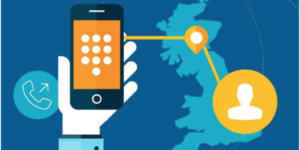What are DID Numbers?
DID is the abbreviation for Direct Inward Dialing. This is a virtual local phone number for a given country, region, or city. Inbound calls to these numbers are forwarded as VoIP calls over Internet using a specific protocol (SIP, H.323, IAX) or are forwarded to a traditional telephone system, which includes both stationary and mobile phones.
A company usually uses international DID numbers to enable calls from clients in a given country without the need to have a physical presence (e.g. an office) there. Forwarding the calls via Internet allows significantly lower costs per volume of data traffic when compared to traditional international calls (whose costs are really prohibitive).

Advantages Conferred By DID Numbers
However, the primary reason DID numbers were invented was to enable the assignment of a direct number to individual employees without needing more physical phone lines (hence the term of “virtual numbers”). In fact, a single DID number can simultaneously process thousands of calls to an unrestricted number of extensions within a given company.
It is easy to imagine why this can be useful for a business. Having separate telephone lines for the CEO, commercial director, technical assistance experts, customer support, regular employees, or other types of employees can result in significant expenditure for establishing the infrastructure and high monthly costs for the services provided by the telephone company. DID numbers solve this problem.
Another important aspect is that of scalability. With physical telephone lines, one needs to make the decisions in advance with regard to how many lines are needs. This decision can later prove to be an over- or underestimation. Given that DID numbers are virtual numbers, their amount can be scaled up (or down) according to the needs almost instantly and with no modifications to the existing infrastructure.

General Considerations When Choosing A DID Number Provider
There are several recommendations when looking out for a DID number provider:
- ideally, the DID numbers should make possible both outbound and inbound calls on the same local carrier connection (native Caller ID);
- for a global business, the list of countries should be explored– not only the extent and quality of coverage counts, but also the specific countries included;
- the provider should offer flexibility in scaling channel capacity (especially, conference calls or other high traffic events are likely);
- the provider should offer to perform the integration of the service with the existing infrastructure;
- pricing – DID numbers should offer a clear price advantage to traditional international calling and the value for the provided quality should beat competitors. The pricing scheme is also an important aspect – a business should consider whether metered minutes or flat-rate channels are more convenient and whether the provider allows such pricing schemes.
To conclude, the particular needs each business has vary greatly as a function of the type, scale, and geography of the business, thus, besides the listed recommendation, many other specific ones might apply.








